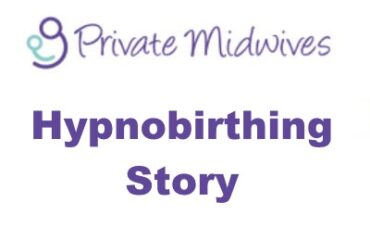
As you embark on this exciting adventure, it’s essential to understand the remarkable role played by the umbilical cord in nurturing and supporting your developing baby. Here, we share insights into the function of the umbilical cord, as well as important topics such as nuchal cords, delayed cord clamping, and cord care.
So, let’s unravel the wonders of the umbilical cord together!
The Function of the Umbilical Cord
The umbilical cord serves as a lifeline, connecting your baby to the placenta within your womb. It is a flexible tube containing blood vessels that carry essential nutrients and oxygen from you to your baby. Simultaneously, waste products and carbon dioxide from your baby’s system are transported back to your body for elimination. In essence, the umbilical cord acts as a vital bridge, nourishing and sustaining your growing little one.
Nuchal Cords
Feeling your baby move regularly is a good sign that your baby is healthy, however, many parents worry that their little gymnast may be getting themselves in a bit of a tangle. A nuchal cord refers to when the umbilical cord becomes wrapped around the baby’s neck. While this occurrence may sound alarming, it is actually relatively common, with studies estimating that around a third of babies have nuchal cords at birth. The majority of nuchal cords do not pose significant risks, as the cord is often loose and can be easily unwrapped during birth.
Delayed Cord Clamping
Once your baby is born, they adapt to life outside of the womb very quickly. The umbilical cord helps to support this transition by continuing to pulsate, delivering blood containing oxygen and stem cells to the baby. At the time of birth, approximately a third of your baby’s blood volume resides in the placenta and cord, if the cord is clamped and cut immediately, then this blood is never received.
Delayed cord clamping has gained significant attention in recent years for its benefits. This practice involves waiting for a brief period, usually 60 seconds to 6 minutes after birth, before clamping and cutting the umbilical cord. By delaying cord clamping, your baby continues to receive oxygenated blood from the placenta, which can enhance their blood volume, iron stores, and overall health. Studies suggest that delayed cord clamping may reduce the risk of anaemia, boost immunity, and improve neurodevelopmental outcomes.
Delayed cord clamping can be achieved in most situations, including;
- If you have a caesarean or an assisted vaginal birth
- Active or physiological management to deliver the placenta
- If you or your birth partner want to cut the cord
- During resuscitation of a baby
- If blood needs to be taken from your babies cord (e.g. if you have a rhesus negative blood group)
Optimal cord clamping (sometimes referred to as “physiological” cord clamping) involves allowing the cord to completely stop pulsating following birth. This ensures that all of the babies intended blood volume is fully transfused and that the baby has transitioned naturally to life outside of the uterus.
You can also choose to not clamp or cut the cord at all, this is often referred to as a ‘lotus birth’. The baby is left attached to the placenta until the cord naturally dries and then separates from the babies tummy.
Umbilical Cord Care
Immediately following birth, your baby’s cord will be flexible and jelly-like. There are usually 3 vessels in the cord (2 arteries and 1 vein), crucially, there are no nerves in it, meaning that it will not cause your baby pain or discomfort if the cord is touched, moved, clamped or cut.
In the first 5 days following birth, the cord will change in appearance by drying out and going hard. It will also change in colour, turning almost black. You will no longer be able to move it once it has hardened, we usually advise keeping the cord dry and to fold your babies nappy down to allow airflow, to facilitate the drying process.
The cord will naturally fall off by itself, usually between 5-15 days old. Most umbilical cords heal well, although occasionally an infection can develop, red/inflamed skin around the base of the cord and/or yellow or green discharge from the stump itself can indicate an infection. Please contact your midwife/GP/hospital if you notice this.
When the cord detaches, you may notice a small amount of sticky discharge (similar to a scab) with a few drops of blood, where the cord was attached to your baby’s skin. This is completely normal and it may take another 7-10 days for your baby’s belly button to heal fully.
Final Thoughts
The umbilical cord is a miraculous lifeline that sustains your baby’s growth and development throughout pregnancy. Understanding its functions and related topics such as nuchal cords, delayed cord clamping, and early days cord care can empower you to make informed decisions about your birth plan. Remember to have open discussions with your healthcare provider, who will provide guidance based on your specific circumstances.
As you anticipate the arrival of your little one, rest assured that the umbilical cord will continue to play its crucial role even following the moment of birth. Cherish these moments and approach them with confidence, knowing that you are equipped with knowledge about the wonders of the umbilical cord.
Wishing you a healthy and joyous pregnancy journey!
If you have any questions at all about your pregnancy please don’t hesitate to contact us





You must be logged in to post a comment.